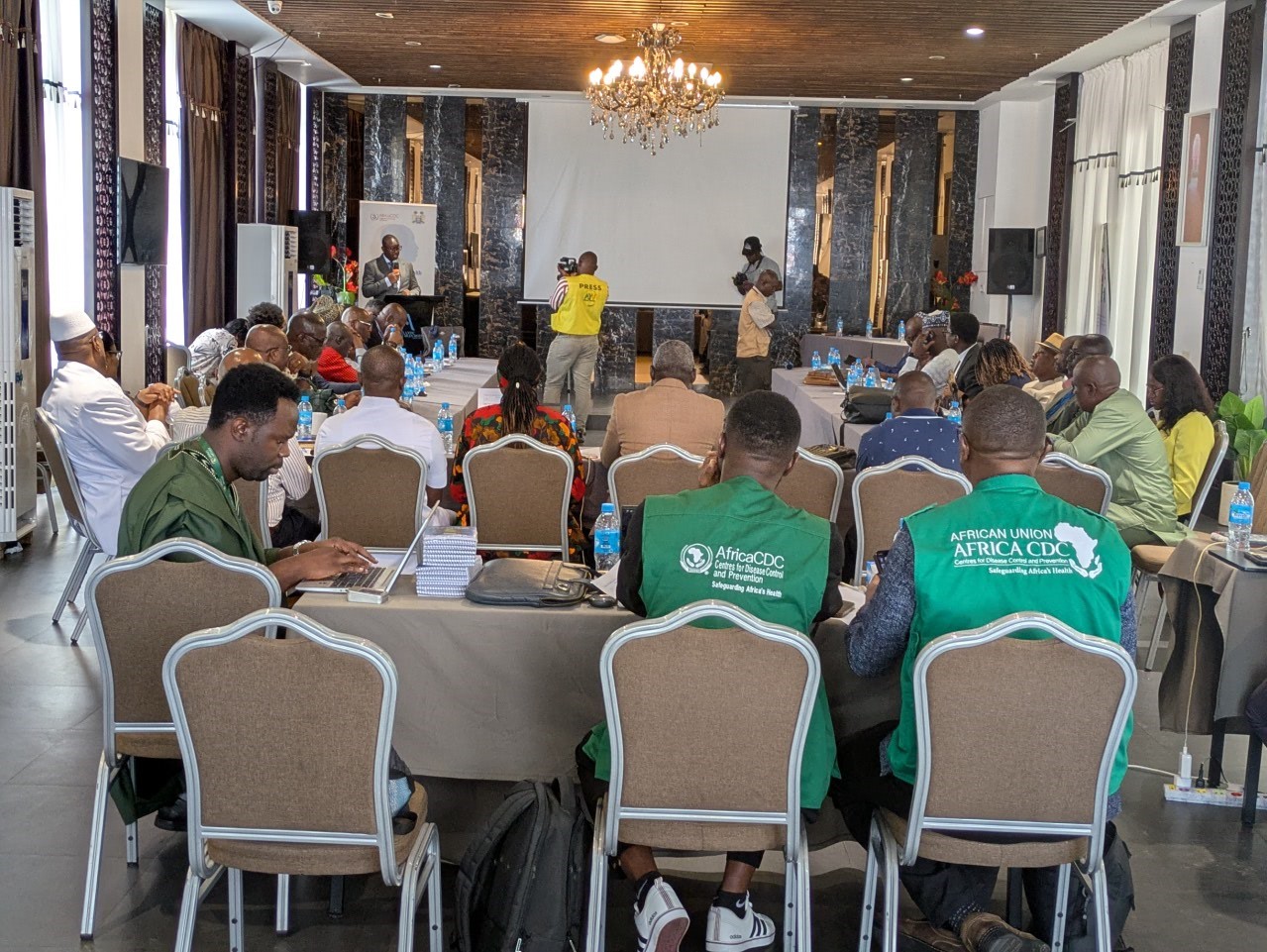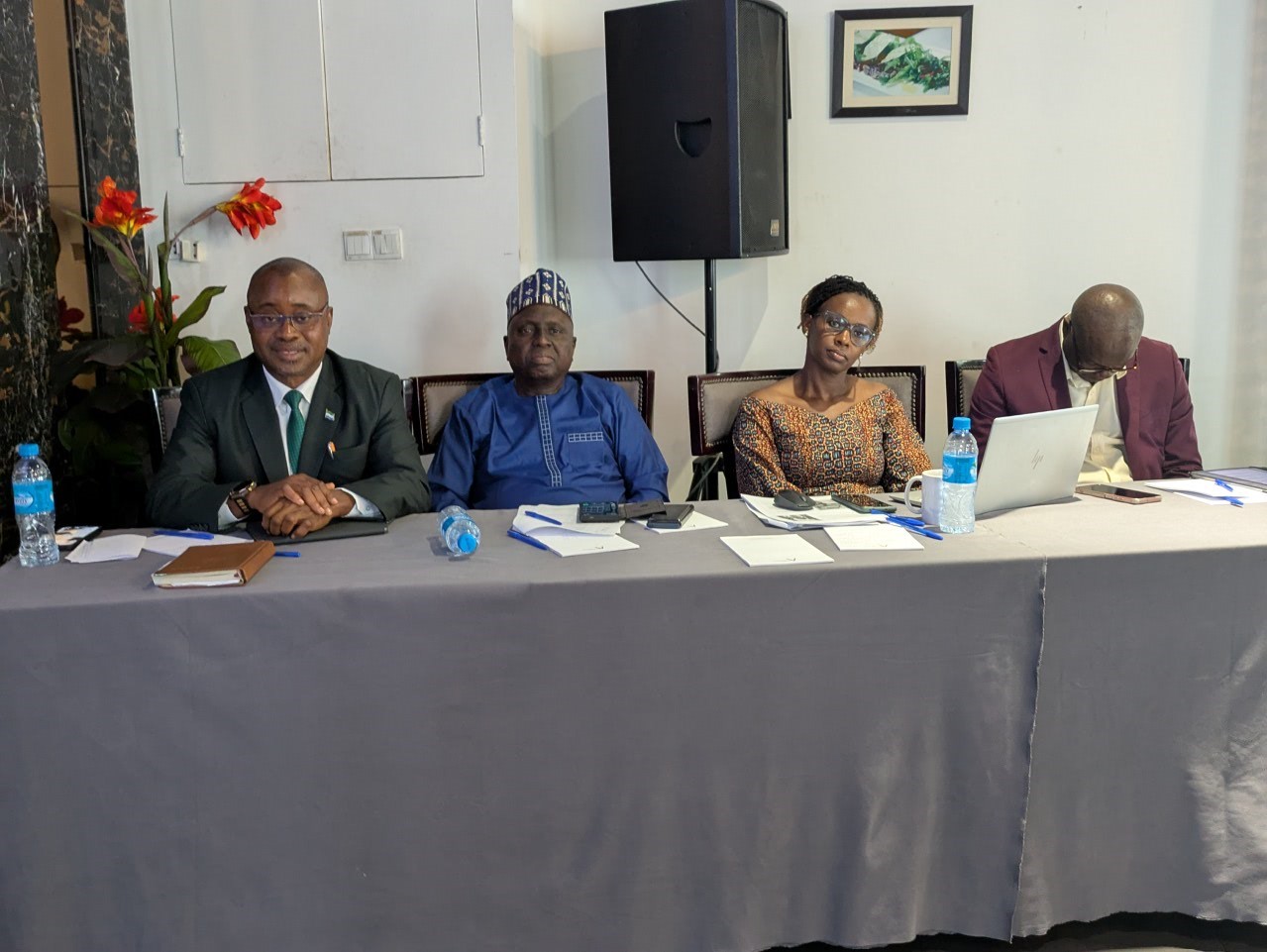By: Kemo Cham

The Africa Centers for Diseases Control and Prevention (Africa CDC) on Monday September 15th convened a high level stakeholders’ meeting in Freetown, with the objective of rallying support for the enactment of a modern mental health legislation in Sierra Leone.
A draft bill in the making for over 15 years, led by the Ministry of Health (MoH), is already before lawmakers. If passed, it will repeal a colonial era law campaigners say is not only overly outdated, but also serves as barrier to access to mental services in the country.
This initiative by Africa CDC is part of implementation of the African Union’s strategy on mental health, which seeks to strengthen mental health systems, improve service access, reduce stigma and develop leadership and policy capacity in member countries. And it is a crucial part of the African Union's Agenda 2063 development blueprint.
The Freetown engagement held at the Atlantic Lumley Hotel in Aberdeen is one of several activities being undertaken as part of a three-day mission by the African Union High Level Committee on Mental Health, led by Dr Mohammed Abdulaziz, Head of the Division of Disease Control and Prevention at Africa CDC.

Dr Abdullaziz told participants at the meeting that the continental public health agency was keen on ensuring that every member state has a modern mental health law, noting that to reduce the mental health burden on the continent, coverage of services should be as good as other health issues.
Africa CDC says its objective in the Freetown engagement is to make input into the bill and support advocacy to speed up its passing into law. Some neighbouring countries, including The Gambia, were invited to learn from the process as part of the mission that was scheduled to meet with to relevant officials, including Minister of Health Dr Austine Demby and President Julius Maada Bio during their three-day stay in the country.
“It is the hope of the Africa CDC that all outdated laws in the space of mental health are updated,” said Dr Abdulaziz. “African Union Agenda 2063 cannot be attained without modern laws.”
The mission also comprises experts on mental health from Nigeria, one of the few Member AU countries to have enacted modern mental health laws, as well as lawmakers from Kenya, Nigeria and Zimbabwe, who have championed the passage of mental health laws in their respective countries.
These experts and lawmakers shared their experiences from three different realities surmounting political, legislative and other stumbling blocks in their efforts to have their laws passed.
Data from the Africa CDC show that only about half a dozen countries on the continent have enacted modern mental health laws or have significantly reformed their legislation to align with international human rights standards.
The rest still operate under outdated, colonial era laws. Sierra Leone operates under the 1902 Lunacy Act, which has provisions similar to those left by colonial master Britain in Gambia, Nigeria, Ghana and many other former British colonies.
But according to Professor Taiwo Lateef Sheikh, a Nigerian psychiatrist and a prominent mental health expert, many of these laws could be 200 years old, as they were adopted from laws that were already outdated. He said these laws set the stage for continued under-prioritization of mental health in many countries on the continent, leaving huge treatment gap. Many of these laws use pejorative terms, like lunacy, and makes it legal for patients to be thrown into asylum and left to die, he said.
Mental health accounts for 5 percent of total disease burden on the continent, yet it is responsible for 19 percent of causes of disability,’ said Prof Sheikh, who is also an Advisory Board Member of the Africa CDC’s NCDs/Injuries/Mental Health programmes.
He noted that in most African countries, 95 percent of people who require mental health services do not get it. "There is no vaccine for mental health, so nobody is immune,” he warned.
Sierra Leone has been working on its draft mental health bill since 2011. Campaigners and officials blame the long delay to enact it on social stigma and cultural beliefs, lack of resources and infrastructure, among other factors.
The Mental Health Coalition of Sierra Leone has been at the forefront of efforts to mobilize support for reform in the sector.
Joshua Abioseh Duncan, Country Director of the Coalition, hopes that this engagement will serve as inspiration for the country to fast track enactment of the long overdue legislation.
“The case studies from other countries are key learning points for us and I would want to say this is something we need to reinforce,” he said.
The stakeholders’ engagement brought together officials from the Ministry of Health, lawmakers, as well as mental health champions drawn from a cross section of society. Officials and campaigners say Members of Parliament are particular critical in the effort to enact the law, hence their involvement.
In attendance at the event were both the minority leader, Abdul Kargbo, and head of the Parliamentary Committee on Energy, Kekura Vandi, representing both chairpersons of the Judicial and Health Committees. They committed to supporting mental health by ensuring the swift passage of the bill and allocating substantial amount of money to the sector.
Without reform of its mental health law, Sierra Leone risks reverting to civil war due to mental health related issues that fuelled the last war, said Hon. Kargbo.
Passing of the bill is supposed to be simple because everybody is affected directly or indirectly by mental health, added Hon. Vandi, who also represented the majority leader and head of government business in the House at the event.
Africa CDC is collaborating in his initiative with the Directorate of Mental Health and Non-Communicable Diseases in the Ministry of Health, which is headed by a Fellow of the African Union’s Global Health Leadership on Mental Health, Dr Abdul Jalloh.
He said that a new mental health law for Sierra Leone is necessary to align it with international laws, including recommendations of the World Health Organization (WHO). Dr Jalloh revealed that the draft piece of legislation, when passed, will protect rights of mental health patients, provide for standard care of facilities and end degrading treatment of patients.
Jalloh has led reform in the mental health sector in the last few years as head of the country's only psychiatric hospital - the Sierra Leone Psychiatric Teaching Hospital, which has been transformed from a torture chamber to a modern care giving facility.
Monday's event was graced by the Deputy Chief Medical Officer for Public Health, Dr Alie Wurie and Deputy Minister of Health, Dr Charles Senisie. The Deputy Minister reiterated government’s commitment to the enactment of the bill, citing mental health as a top priority for his administration.
“We have gone through a lot of issues in Sierra Leone, we had long years of civil war, and then we had Ebola and then came Covid, and now we are mopping up Mpox. All those pandemics came with their own mental health crises,” said Dr Senesie.
“We as a government remain firmly committed to the swift passage of the mental health bill,” he assured.
Comments
Post a Comment